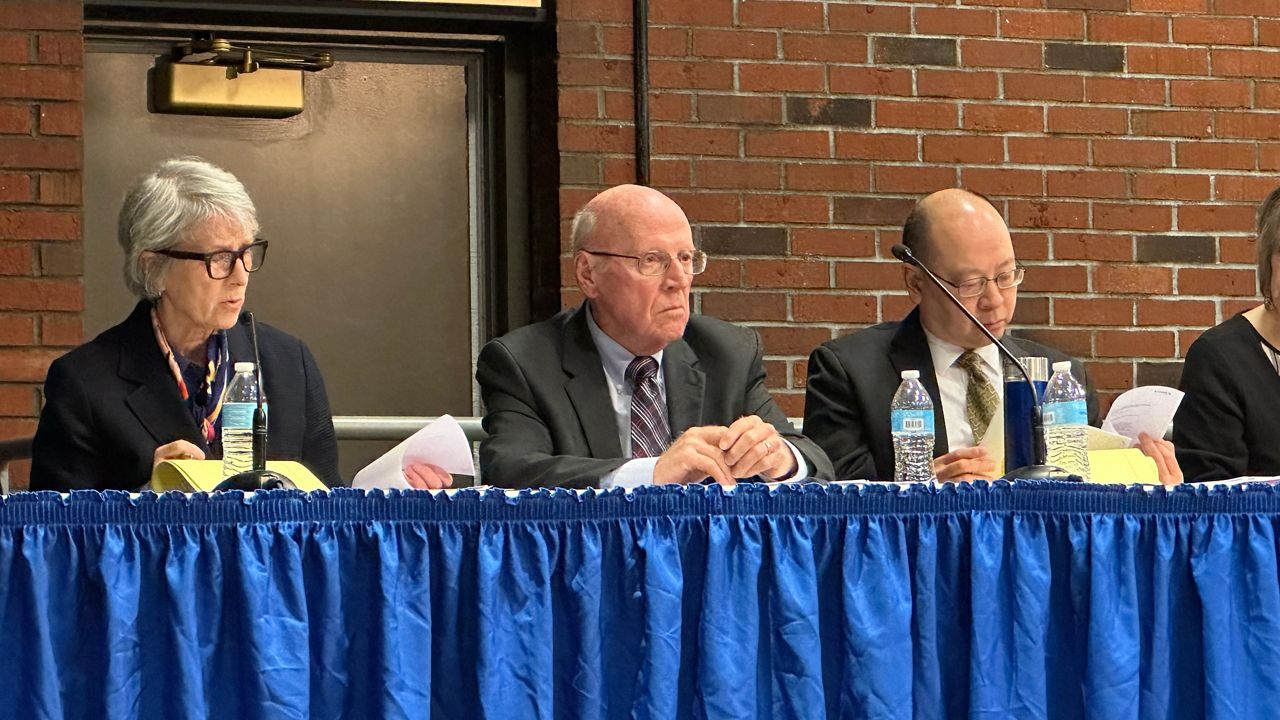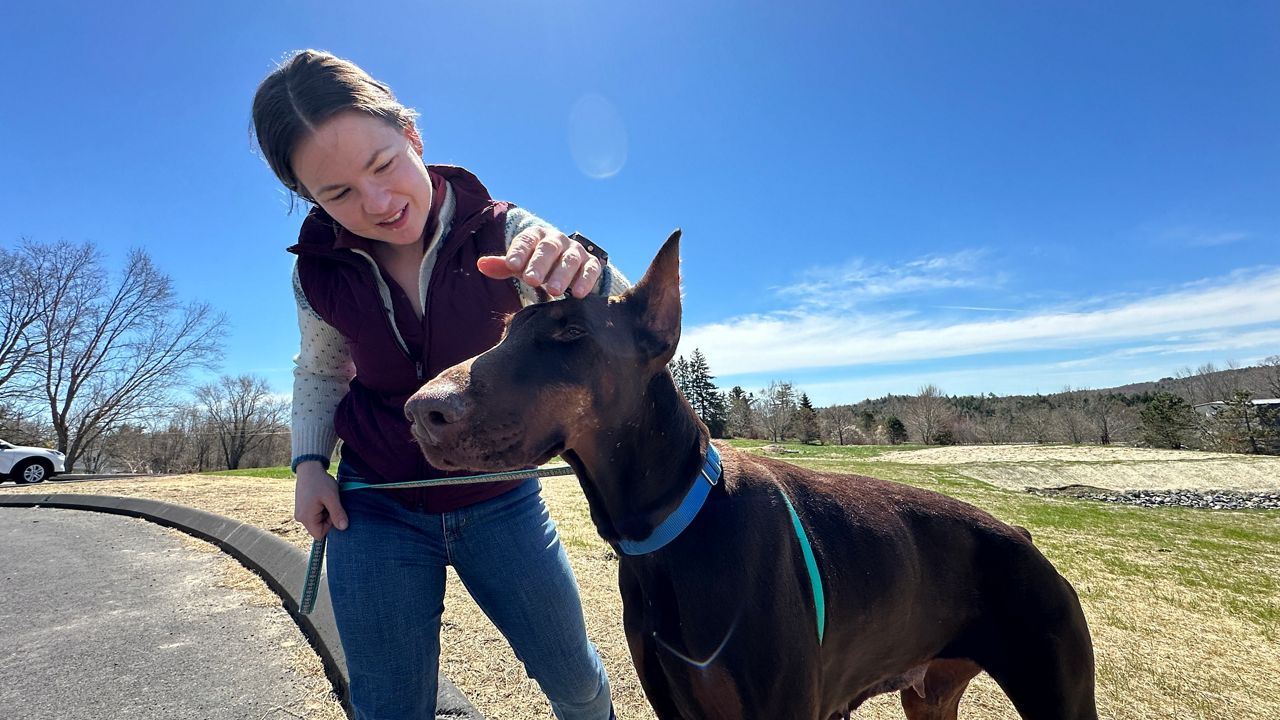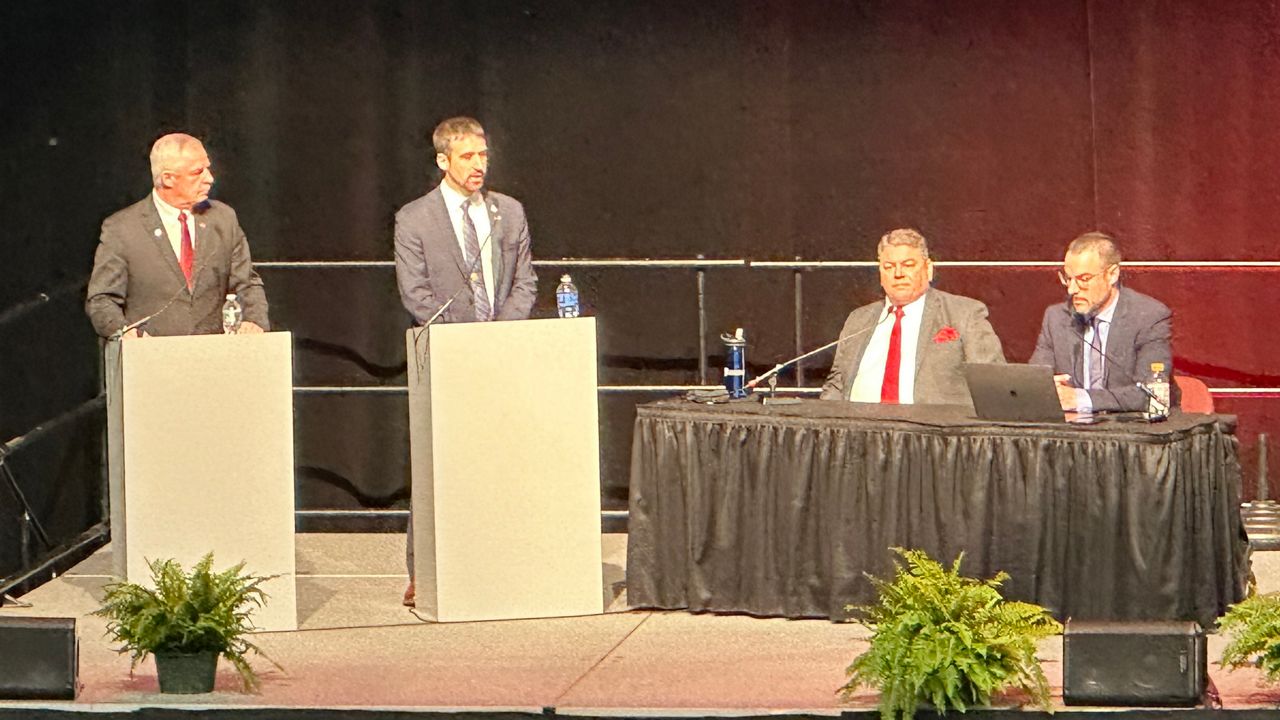The Lewiston shooting commission grilled an Army reserve captain Thursday about why he didn’t do more to stop Robert Card before he killed 18 people in October.
They asked Army Reserve Capt. Jeremy Reamer detailed questions about whether he underplayed the risk Card posed and why he didn’t get him additional mental health treatments.
They quizzed him on why he left it to Card’s family to remove his weapons and why he made comments that seemed to undermine a fellow reservist who warned of the danger.
Ultimately, Reamer said he wished he had followed up more on Card’s mental health status, but that he stood by his decision to have a fellow reservist work with Card’s family to remove his firearms.
“I think it’s a viable plan,” Reamer said. “It’s one that’s used often to have the family remove the personal firearms.”
Commission member and Portland attorney Toby Dilworth then asked him if he agreed “with the proposition that families can’t police their own, right?”
Reamer responded: “No. I think the families can police their own and if the families can’t police their own they should seek local law enforcement for assistance.”
Members of the Card family had asked for help from the Sagadahoc County Sheriff’s Office as far back as May 2023.
The exchange was just one of many Thursday morning as the independent commission continued its investigation into the circumstances that led up to the shootings, the deadliest in state history.
Card, 40, of Bowdoin, killed 18 people and wounded 13 at a bowling alley and a bar in Lewiston on Oct. 25. Months prior, his family told the Sagadahoc County Sheriff’s Office they were worried about Card’s deteriorating mental state and his access to weapons.
That was in May, and in July, Card’s reserve unit ordered him to seek psychiatric care in New York following an incident during a training session.
Following his release from the hospital, they ensured he would not have access to his military weapons. Reamer told the commission Thursday that the reserve does not have the authority to remove privately owned weapons, although the facility that treated Card recommended that he not have access to guns.
Reamer said he relied on reservist Sean Hodgson, a good friend of Card, to work with the family to secure the weapons. Hodgson could not remove the firearms himself because of a previous domestic violence conviction, Reamer said.
Last month, the commission issued an interim report that focused largely on the sheriff’s office and its failure to conduct a welfare check on Card the month before the shootings.
The commission found that the sheriff’s office had ample evidence to use the state’s “yellow flag” law to take Card into custody and get him a mental health evaluation. If the evaluator and a judge agree, police then have the power to seize weapons.
Dilworth asked Reamer about why the reserves didn’t seek additional mental health treatments for Card after he threatened to “shoot up” the Saco unit in September.
Reamer said he alerted local police, who posted officers outside the training center in case Card attended the drill weekend. Card did not show up.
Commission member Debra Baeder listed off numerous things Reamer knew in September following Card’s threat on the armory.
That included Card’s hospitalization in New York for psychiatric treatment, the hospital’s concerns about Card’s access to weapons, that Card didn’t follow up with recommended medications and treatment and that Hodgson warned that he feared Card might commit a mass shooting.
“That’s a lot of information that you were aware of regarding Sgt. Card’s risk as of September 16, would you agree with that?” she said.
Reamer replied: “I agree.”
Baeder then asked why Reamer seemed to downplay the importance of a welfare check to the sheriff’s office, essentially asking them to confirm that he’s “alive and well” and to document it.
Reamer, who is a police officer in New Hampshire, said he didn’t want to tell local police how to do their jobs.
“Given what you knew about his pretty concerning behaviors, ‘check that he’s breathing and document it’ seems like an under reaction to the risk he may have been posing on Sept. 16,” she said. “You understand that there’s a disconnect there in my mind?”
Reamer replied: “I can understand that’s your understanding of it.”
The commission also heard from victims on Thursday, including Jamie Jordan, who was at Just-in-Time Recreation with her three children, ages 9, 14 and 16.
Jordan said the evening of family bowling began like a normal night, with the children hanging out with their friends and exchanging jokes with bowling coach Bob Violette.
“My heart breaks for all those others involved, most of all my three kids and the other 15 kids that were there that night,” she said. “Eighteen kids whose lives are forever changed. Eighteen kids who lost a part of their innocence that they can never get back.”
One of those kids was the shootings’ youngest victim, Aaron Young, 14. Bob Violette and his wife Lucy were also among those who died.









)